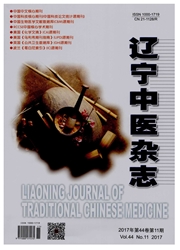

 中文摘要:
中文摘要:
目的:观察流感病毒对幼龄鼠与成龄鼠肺组织NF-κB p65及TLR4的表达的影响。方法:昆明种小鼠随机分为幼龄模型组、成龄模型组、幼龄正常对照组、成龄正常对照组,每组40只,采用经鼻腔接种甲型流感病毒FM1株使小鼠产生肺炎。各组小鼠感染第1、3、5、7天,处死动物取材,每组各取10只,采用免疫组化染色法检测各组小鼠肺组织NF-κB p65和TLR4的表达。结果:幼龄鼠TLR4、NF-κB P65表达显著升高,成龄鼠轻度升高,二者差异显著。结论:幼龄鼠和成龄鼠IV感染后肺组织TLR4-NF-κB P65信号通路活化程度不同。
 英文摘要:
英文摘要:
Objective: To observe the effect of influenza virus on the expressions of NF-κB p65 and TLR4 in young mice lung tissues and mature mice tissues. Methods: Kunming mice were randomly divided into 4 groups,each group 40 mice. The group was named as young model group,mature model group,normal control group of young,and normal control group of mature. Using nasal inoculation of influenza virus FM1 strain in mice to produce pneumonia model. Each group of mice was infected on 1,3,5,7 day,mice were sacrificed,and each group took 10 to detect the expressions of NF-κB p65 and TLR4 in lung tissue of mice through immunohistochemical staining. Results: The expressions of NF-κB p65 and TLR4 were significantly higher in young mice group than those in mature mice groups and the difference was significant. Conclusion: The degree of signal pathway activation is different between the lung tissue after infecting IV in young mice group and mature mice groups.
 同期刊论文项目
同期刊论文项目
 同项目期刊论文
同项目期刊论文
 期刊信息
期刊信息
